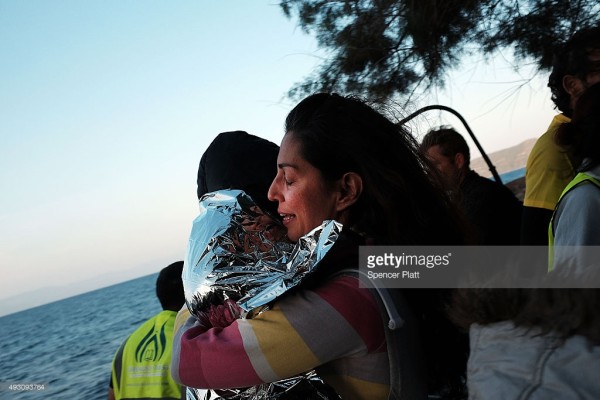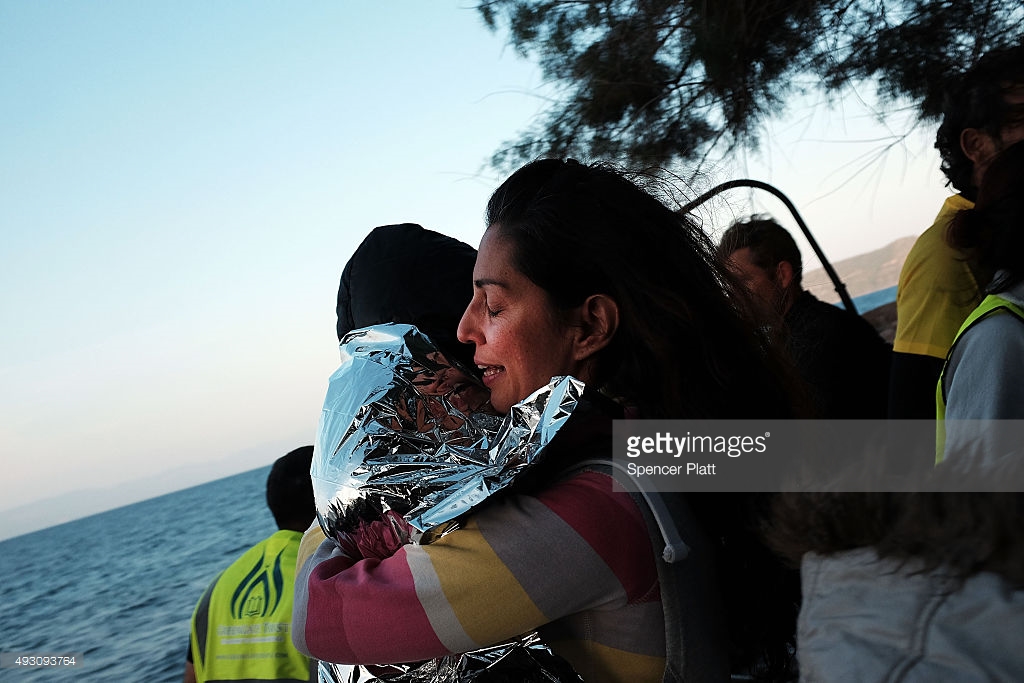
In March 2011, the beginning of the ‘Syrian Civil War’ or the ‘Conflict in Syria’ began. Pro Democracy protests triggered by the arrest and torture of teenagers led to state forces using violent means to suppress demonstrators, killing several. The people of Syria demanded the resignation of President Assad and as the state continued to lash back at protesters, their movement grew. These events sent Syria into what has been over four years of violence between the Assad regime, rebel fighters, terrorist cells, and militant groups, which has has taken more than 310,000 Syrian lives. The violence has forced those looking to escape it to leave their homes and find refuge abroad or in areas of Syria where the violence is not as concentrated. Since 2011, the total number of displaced people within Syria has been 6.1 million. The total number of Syrian refugees abroad has been 4.1 million. In the United States, since 2011, we have accepted 1,682 refugees, .042 percent of the total Syrian refugee population. September of 2015, President Obama announced that the U.S would accept at least 10,000 Syrian refugees in 2016. This announcement triggered much backlash when on November 13th, 130 people were killed with hundreds more injured in a string of terrorist attacks in Paris, an event which shocked the world.
The attacks in Paris raised questions about the United States’ refugee vetting process, amid security fears. Amongst the reaction was Republican Senator and Chairman of the Judiciary Committee, Charles E. Grassley from Iowa who stated, “We need to figure out how we can better screen these refugees and ensure that terrorists among them are not evading proper screenings”. Attorney General Loretta Lynch was called before Congress to testify on the vetting process refugees enter and stated it was “significant and robust” in identifying security threats. Members of Congress overseeing the hearing, referenced statements from FBI Director James Comey who echoed statements made by Assistant Director of the FBI’s Counterterrorism Division Michael Steinbach in which he says there is a “lack of information” regarding Syrian refugees as we do not have an intelligence presence in Syria , as a means to pushback the statement made by the Attorney General. The White House, in support of President Obama’s pledge, also posted an infographic detailing the vetting process.
With Presidential hopefuls chiming in, and on opposite ends of the spectrum, it’s clear that the conversation has developed into whether or not to admit refugees into the U.S and if the process is thorough enough. The vendetta is proving the reaction from certain political figures and lawmakers questioning the security of the United States’ vetting process after the attacks in Paris were based on assumptions of ethnicity and presumptions of radicalization.
Current legislation is dead in the water. Days after the attacks in Paris, the House of Representatives passed the American SAFE Act but it was blocked January 20th by Senate Democrats. The bill would have added another step to the refugee vetting process by requiring those persons seeking refuge in the U.S, “may not be admitted as a refugee until the Director of the [F.B.I.] certifies to the Secretary of Homeland Security and the Director of National Intelligence that each covered [persons] has received a background investigation that is sufficient to determine whether the covered [person] is a threat to the security of the United States”.
Are adding steps to the screening process or baring Syrian refugees from entering the country addressing the ‘security threat’? In short, no. This knee jerk reaction is based on the assumption the attacks in Paris were carried out by migrant Syrians. Of the attackers, none of whom were Syrian, two were suspected of traveling while posing as refugees in possession of fake passports, exploiting an already broken and vulnerable population. Authorities in Greece where the two were admitted said they do not have the resources to properly screen refugees, even their passports. Consider this conclusion drawn by the Cato Institute, “The security threat posed by refugees in the United States is insignificant… the low level of current risk does not justify the government slamming that gate shut”. Since 2001, 859,521 refugees have been admitted into the United States and only three have been convicted of planning terrorist attacks outside the United States with none being successful. Or, one terror conviction for every 286,543 refugees. Even if we were to assume that for some reason Syrians are three times more likely to radicalize and are very good at hiding it, the U.S. would have to admit 95,514 people before convicting a single refugee for an attempted terror attack.
Given that the overreaction by certain political leaders were unfounded, none of the attackers were Syrian and our security net has proven to be resilient and thorough, what can the U.S. do to address the refugee crisis? How does the United States develop stabilizing, long term policy in regards to Syrian refugees? Something must be done, because as the Cato Institute warns, “There is also a risk from not letting in more Syrian refugees that policymakers should consider. Syrians could languish in refugee camps for years or decades to come”
To completely resolve this, look for for Part Two of this series coming next week.
Take Action:
You can help provide aid by visiting the Migrant Offshore Aid Station which provides a fleet of boats patrolling the Mediterranean to save migrants lost at sea: Link
Get a breakdown on the refugee screening process from Secretary of Homeland Security Jeh Johnson who partnered with ATTN to release this video: Link




